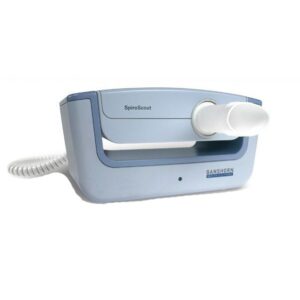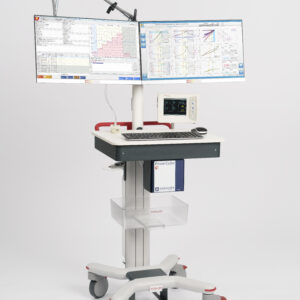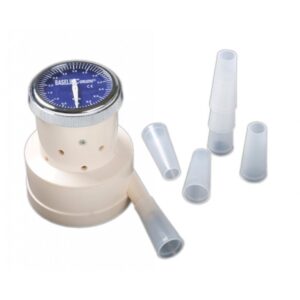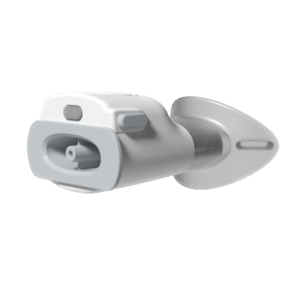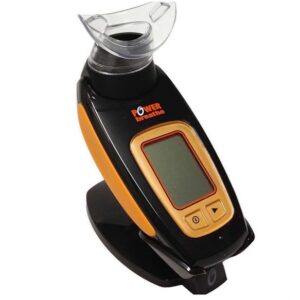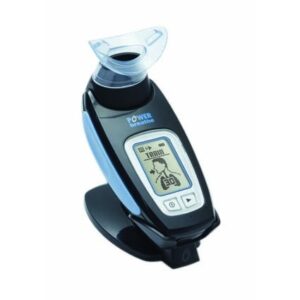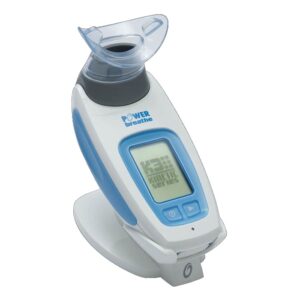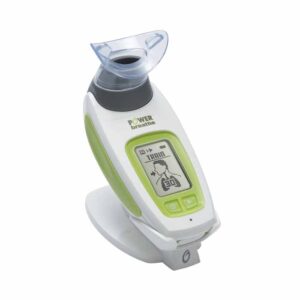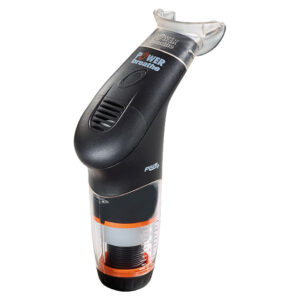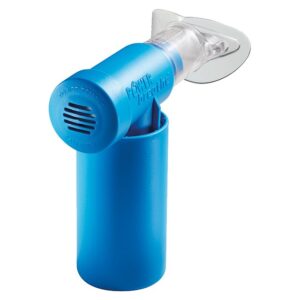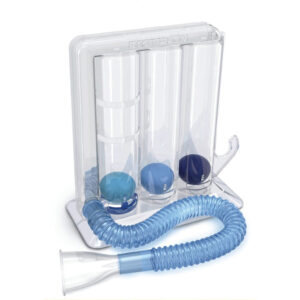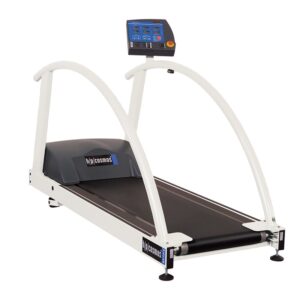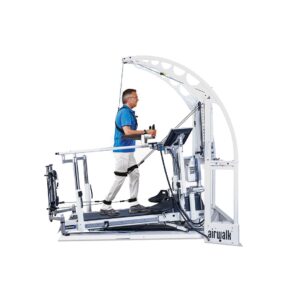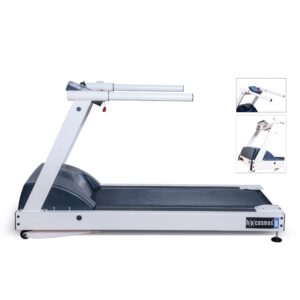Lung function testing plays a vital role in the early detection and management of respiratory diseases. Conditions such as chronic obstructive pulmonary disease (COPD), asthma, and restrictive lung diseases often develop gradually, with symptoms appearing only when significant lung damage has already occurred. By implementing lung function assessments early, healthcare professionals can diagnose diseases sooner, intervene effectively, and improve patient outcomes.
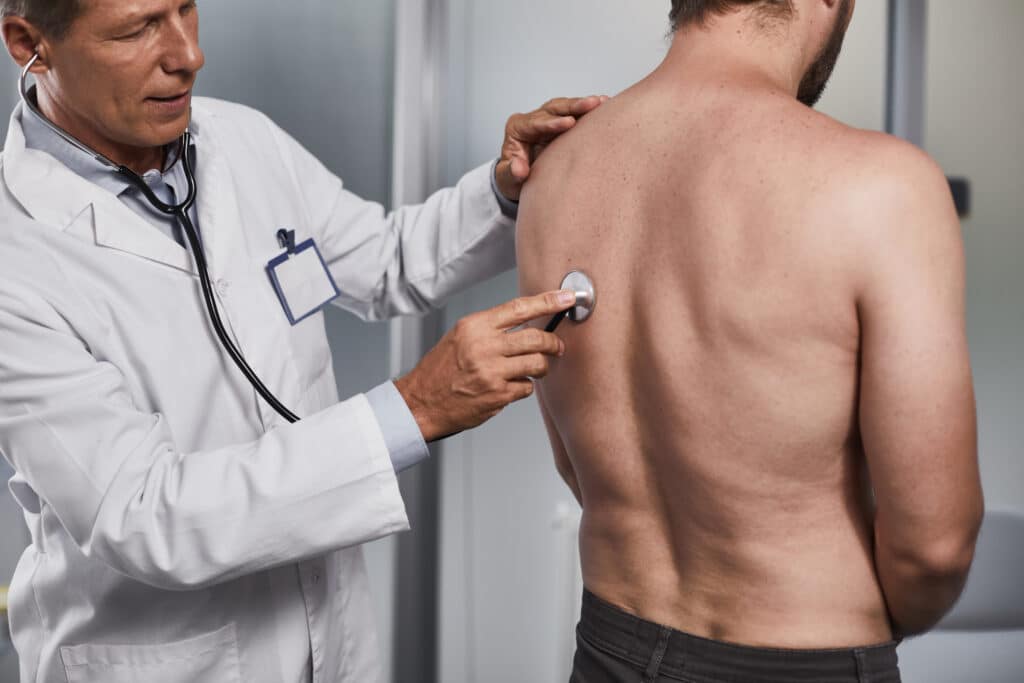
What is Lung Function?
Lung function refers to how well the lungs work in terms of moving air in and out and exchanging oxygen and carbon dioxide between the bloodstream and the environment (respiration). Good lung function is essential for maintaining good health, as it ensures that oxygen is efficiently delivered to tissues and organs while removing waste gases.
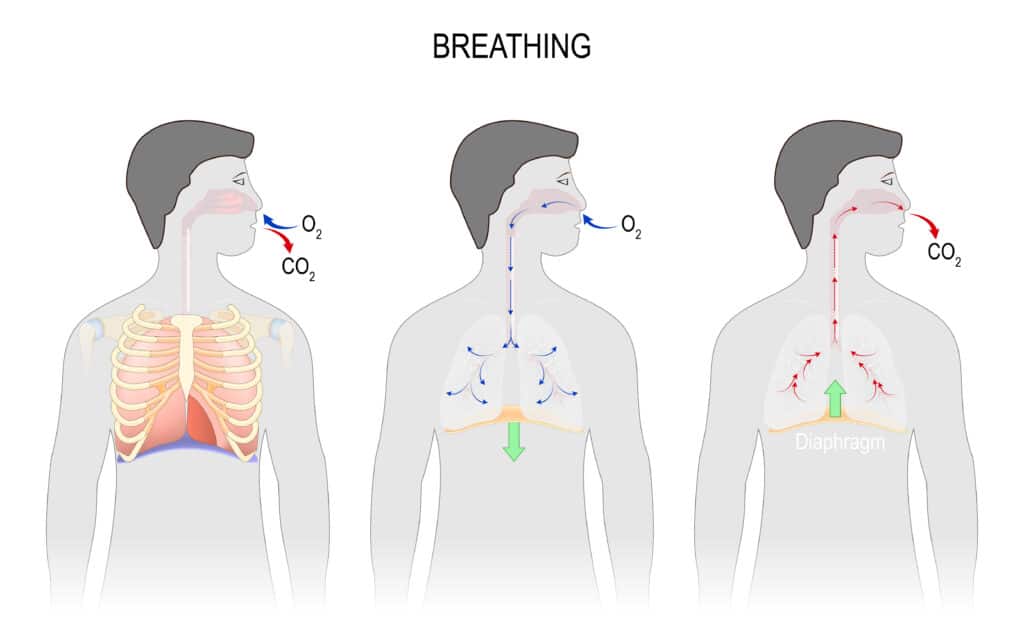
Severe cases of COPD, emphysema (damage to the lungs), or asthma may lead to hypoxia, a condition where oxygen levels in the blood become dangerously low. Symptoms of hypoxia can include confusion, anxiety, rapid heart rate (tachycardia), rapid breathing (tachypnea), difficulty breathing (dyspnea), and extreme restlessness. Prolonged hypoxia can contribute to organ dysfunction if left untreated.
How is Lung Function Measured?
Lung function is measured through pulmonary function tests (PFTs), which evaluate different aspects of respiratory performance:
- Lung volumes – The amount of air the lungs can hold, including total lung capacity (TLC), tidal volume (TV), and residual volume (RV).
- Airflow rates – The speed at which air moves in and out of the lungs, measured using spirometry.
- Gas exchange efficiency – Assessed using diffusing capacity for carbon monoxide (DLCO), which evaluates how effectively oxygen and carbon dioxide transfer between the lungs and bloodstream.
Common methods to measure lung function include spirometry, whole-body plethysmography, and respiratory muscle strength tests.
Why is it Important to Measure Lung Function?
- Early Detection of Disease – Many respiratory conditions develop silently, with symptoms appearing only when lung damage is significant.
- Monitoring Disease Progression – Regular lung function testing helps track disease progression and assess treatment effectiveness.
- Optimising Treatment Plans – Healthcare professionals can use lung function results to tailor medication, lifestyle recommendations, and rehabilitation programmes.
- Assessing Occupational and Environmental Exposure – Workers in industries exposed to dust, chemicals, and pollutants benefit from routine lung function assessments.
- Enhancing Athletic Performance – Athletes can use lung function testing to optimise breathing efficiency and endurance.
Why Early Detection Matters
Many respiratory diseases progress silently in their early stages. Patients may not notice symptoms until lung capacity has significantly declined. According to the British Lung Foundation, an estimated 12.7 million people in the UK are living with lung conditions, many of which are undiagnosed. Early lung function testing allows for:
- Timely Diagnosis – Identifying diseases before symptoms become severe, reducing long-term complications.
- Improved Treatment Plans – Early intervention can slow disease progression, allowing for more effective management.
- Better Quality of Life – Patients can adopt lifestyle changes, treatments, and rehabilitation to maintain lung health.
- Reduced Healthcare Costs – Preventing advanced disease reduces hospitalisations and long-term medical expenses.
- Workplace and Athlete Screening – Routine lung function tests can help assess the impact of environmental pollutants, occupational hazards, and high-performance demands on lung health.
Key Lung Function Tests for Early Disease Detection
Several types of lung function tests help assess different aspects of respiratory health:
1. Spirometry – The First Line of Defence
Spirometry is the first-line diagnostic tool for assessing airflow limitation. The National Institute for Health and Care Excellence (NICE) recommends spirometry as essential for diagnosing chronic obstructive pulmonary disease (COPD), which affects an estimated 1.2 million people in the UK. However, due to underdiagnosis, the true prevalence is likely higher.
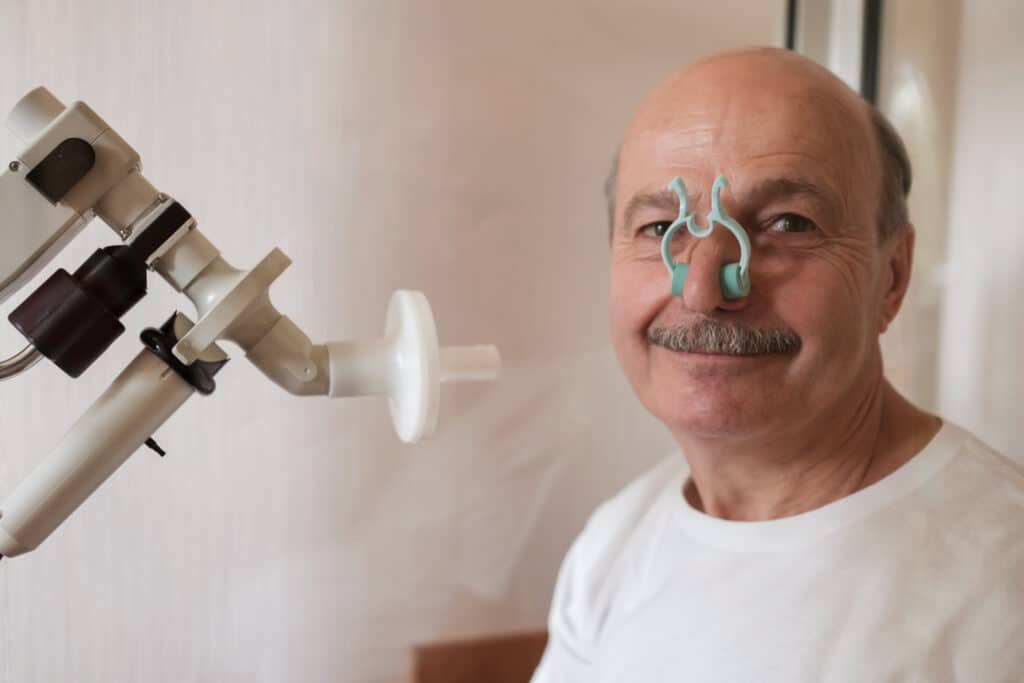
HaB Direct’s Spirometry Solutions:
- Ganshorn SpiroScout – A high-precision ultrasonic spirometer that provides accurate lung function measurements without the need for disposable sensors or calibration. It meets ERS/ATS standards for precision and reproducibility.
- Spiropet Spirometer – A compact and easy-to-use device ideal for basic lung function screening, making it suitable for general practitioners, clinics, and occupational health assessments.
- Schiller CARDIOVIT CS-200 Office ErgoSpiro – A high-end cardiopulmonary exercise testing (CPET) system that combines spirometry with ECG analysis, allowing for a comprehensive evaluation of pulmonary and cardiovascular function. It is ideal for clinical and research applications, providing detailed insights into respiratory performance during exertion.
2. Whole-Body Plethysmography – Advanced Lung Function Analysis
Whole-body plethysmography is a more comprehensive test that measures lung volume, airway resistance, and total lung capacity. It is particularly useful for detecting early signs of restrictive lung diseases, interstitial lung disease, and chronic respiratory conditions where spirometry alone may not be sufficient.
HaB Direct’s Solution:
- Ganshorn PowerCube Body+ – A whole-body plethysmograph that delivers a complete pulmonary function assessment, helping detect lung disease early and accurately. This system is widely used in hospitals and research centres for its ability to assess residual volume and lung compliance, which are crucial for diagnosing restrictive lung conditions.
3. Respiratory Muscle Strength Testing
POWERbreathe devices can be used to test lung function by measuring inspiratory muscle strength and endurance. They provide valuable insights into respiratory performance, particularly in individuals with respiratory conditions, athletes, and those undergoing rehabilitation.
How POWERbreathe Devices Test Lung Function:
- Inspiratory Muscle Strength Testing (IMST) – POWERbreathe devices create variable resistance against inhalation, helping measure the strength of the inspiratory muscles. This can indicate reduced respiratory muscle function, which is common in conditions like COPD, asthma, and neuromuscular diseases.
- Endurance Testing – By measuring the ability of the user to sustain a breathing load over time, POWERbreathe devices assess respiratory muscle fatigue, which can be a factor in breathlessness and reduced exercise tolerance.
- Real-Time Biofeedback & Data Tracking – The POWERbreathe K-Series and Smart Adaptor with Actibreathe App provide real-time feedback and track lung function improvement over time, helping individuals and healthcare professionals monitor progress.
- Pre- & Post-Intervention Assessments – POWERbreathe can be used before and after respiratory training programmes to assess improvement in lung function parameters, ensuring effective treatment and rehabilitation strategies. Respiratory muscle function is a critical component of lung health, particularly for those with chronic respiratory diseases, post-COVID-19 recovery, or neuromuscular disorders. Testing inspiratory muscle strength can help assess conditions that weaken the respiratory system.
HaB Direct’s Solutions:
- POWERbreathe IMT Devices – Designed for inspiratory muscle training (IMT), these devices improve breathing efficiency and help strengthen the respiratory muscles. Research has shown that IMT can improve exercise tolerance and reduce breathlessness in COPD patients.
- POWERbreathe Plus IMT Series – A range of manual IMT devices for different training levels, suitable for home and clinical use.
- POWERbreathe K-Series – Smart, electronic IMT devices that provide real-time biofeedback and track patient progress.
- POWERbreathe Classic IMT – A cost-effective, entry-level option for those looking to strengthen their respiratory muscles.
- POWERbreathe Smart Adaptor & Actibreathe App – Enables on-the-go inspiratory muscle strength testing and tracking. Providing real-time feedback for healthcare professionals and patients.
- Respiron – A respiratory exerciser designed to improve lung capacity and strengthen inspiratory muscles. It is particularly beneficial for post-surgical recovery, pulmonary rehabilitation, and chronic respiratory conditions such as COPD and asthma. Promotes deep breathing, enhances lung expansion. Additionally, it provides an accessible way for patients to maintain respiratory health at home.
The Role of Rehabilitation in Lung Health
For individuals recovering from lung conditions or managing chronic respiratory diseases, rehabilitation plays a crucial role in maintaining lung function and overall well-being. Pulmonary rehabilitation combines exercise, breathing techniques, and education to improve patients’ quality of life.
HaB Direct’s Rehabilitation Solutions:
- h/p/cosmos Locomotion Treadmills – These treadmills support pulmonary rehabilitation by allowing controlled and monitored exercise therapy, improving cardiovascular fitness and respiratory efficiency. Studies have shown that supervised exercise programmes improve lung function and reduce exacerbations in COPD patients.
- Pluto med and Mercury med – Specifically designed for pulmonary rehabilitation providing controlled and monitored exercise therapy. They feature integrated safety systems, precise speed adjustments. Compatibility with cardiopulmonary exercise testing (CPET) systems ensure optimal rehabilitation for patients with respiratory conditions.
Conclusion
Early detection of lung diseases through lung function testing is essential for effective intervention and better patient outcomes. Research has demonstrated that early diagnosis of COPD and asthma through routine lung function assessments can significantly reduce hospitalisations and improve patient prognosis. HaB Direct offers a range of high-quality, research-backed devices that aid in lung function assessment, respiratory muscle training, and rehabilitation.
Healthcare professionals looking to enhance their diagnostic and rehabilitation capabilities can explore HaB Direct’s advanced solutions. These will ensure optimal respiratory health for patients.

